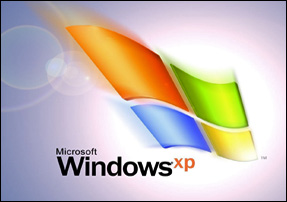 Question from Dana G.: I read an article the other day that said if your computer uses too much virtual memory it will really slow down your programs and stuff.
Question from Dana G.: I read an article the other day that said if your computer uses too much virtual memory it will really slow down your programs and stuff.
My laptop (a Dell w/Windows XP) is running really slow lately, and I was wondering if that could be the problem. And if it is, how can I stop it?
Rick’s answer: Dana, the term virtual memory refers to the way Microsoft Windows uses some of your PC’s unused hard drive space to temporarily hold data that won’t fit into the existing RAM. It does this by storing excess data in a “swap file” on the hard drive.
When data in the swap file is needed by the CPU, it is “swapped” back into RAM where it effectively trades places with some other data that isn’t needed by the CPU at the moment.
This “swapping” of data back and forth between RAM and the hard drive (i.e. the use of “virtual memory”) is a good thing when done in moderation because it allows the CPU to run more programs and use more data than will actually fit into RAM at one time.
But there is a downside to virtual memory as well. Reading to and writing from even the fastest hard drive is slower than reading from and writing to RAM. Therefore, excessive use of virtual memory (lots of swapping data back and forth between RAM and the hard drive) slows down your computer, sometimes even enough to make it virtually unusable.
You can decrease the maximum amount of virtual memory that Windows is allowed to use (i.e. the size of the swap file), but that won’t really help you in terms of speeding up your system. In fact, it will almost certainly make your PC run even slower than it does already.
There are a couple of things you can do to reduce Windows’ use of the swap file however:
1 – Add more RAM. If your PC doesn’t already have the maximum amount of RAM that it can use installed, you can add more. More RAM means less swapping, which in turn means a faster computer!
2 – Reduce the number of programs that are allowed to run at one time. The easiest way to do this is to use a great free utility called Autoruns to keep the number of programs that load automatically at system startup to a bare minimum. Just download and run Autoruns, then uncheck any programs that you don’t really need to have starting automatically every time Windows boots up.
3 – Check your PC for viruses and spyware. In addition to slowing your PC to a crawl, malware infections also put any personal and financial information stored on your hard drive at risk of being stolen and misused by hackers and scammers. I recommend running a “Quick” antivirus scan every day and a full scan once a week. If you aren’t currently using a quality antivirus program, I strongly recommend the free version of Avast.
I also recommend running two excellent “on-demand” anti-malware programs at least once a week. They both have free versions that you can download and use, and they work extremely well. They are called Malwarebytes and Spybot Search and Destroy.
And now there is one more thing I feel that I should mention since your PC is running Windows XP. Microsoft is planning to stop supporting Win XP with security updates come April 2014, which means it will effectively become useless at that point unless you never plan to connect it to the Internet. Once Microsoft has abandoned Win XP, you will have three options:
1 – Simply scrap your existing PC and buy a new one.
2 – Upgrade your Windows XP installation to either Windows 7 or Windows 8.1.
3 – Replace Windows altogether with Linux.
Do you have a tech question of your own for Rick? Click here and send it in!
Need expert computer help? Click here to read about the services that I provide.